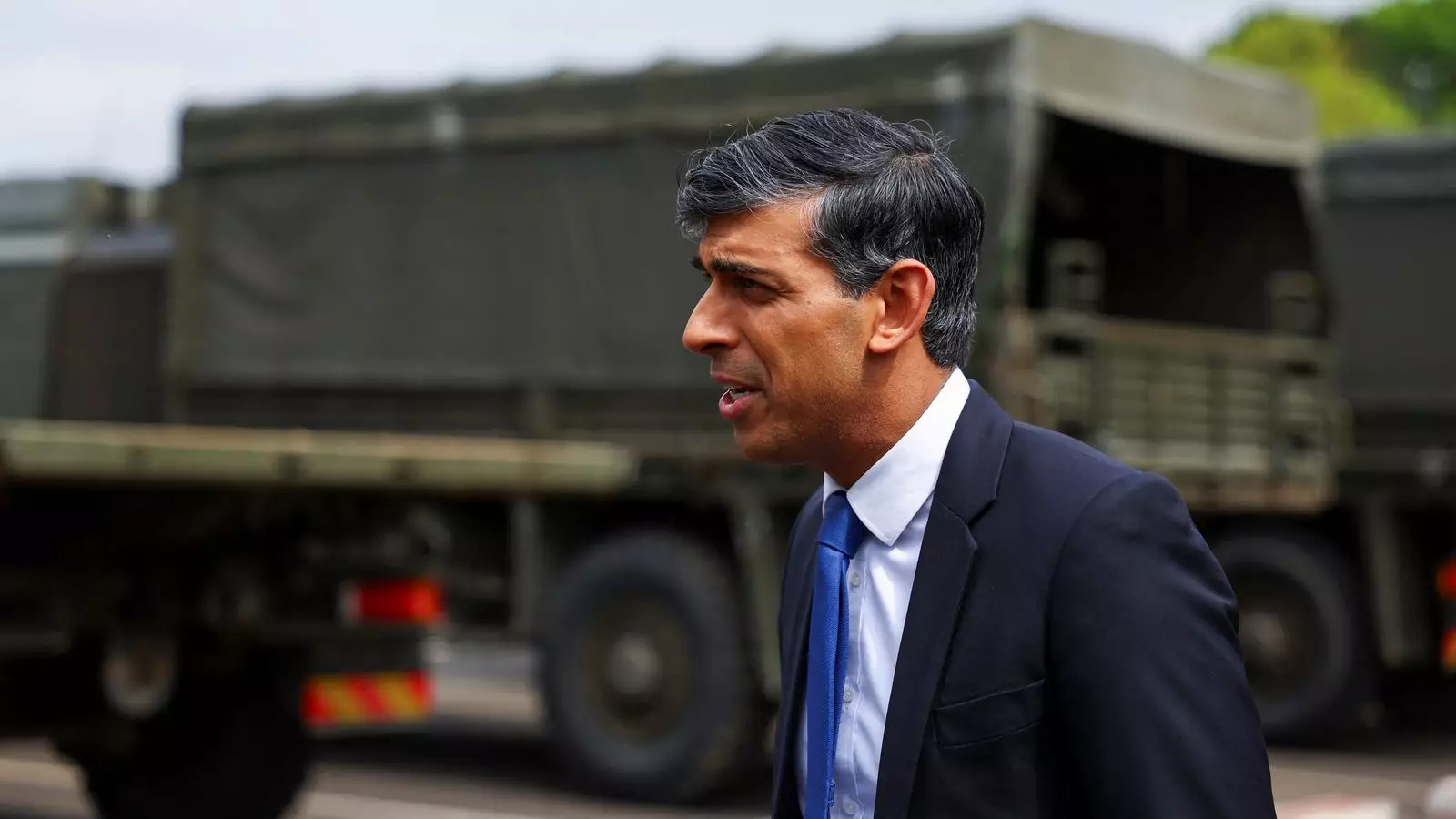In the midst of escalating conflicts around the world, Rishi Sunak, a member of the Conservative party, is set to make the case that Britain is safer under the Conservatives. The recent decision by Prime Minister Boris Johnson to continue arms supplies to Israel, despite pushback from the US, has stirred up controversy. This move comes as Israeli Prime Minister Benjamin Netanyahu plans a military operation in the Gaza town of Rafah, despite warnings from global powers. Simultaneously, there are concerns within Whitehall about a potential Russian operation in Kharkiv, Ukraine’s second-largest city. Both situations have the potential to trigger wider repercussions.
One of the key points of contention between the Conservative and Labour parties is military spending. Sunak announced a plan for a future Tory government to allocate 2.5% of GDP to the military by 2030, emphasizing the importance of security in an increasingly perilous world. In contrast, Labour has cited economic conditions as a deciding factor for determining military spending. The Conservatives aim to highlight the divergence in military spending pledges between the two parties, with Sunak pushing Labour to match their commitment. Labour, on the other hand, has critiqued the feasibility of the Tory spending plan, creating a clear divide on this crucial issue.
The debate over arms supplies to Israel has further deepened the political divide. While Labour has called for a suspension of arms sales to Israel, aligning itself with the United States, the Conservative government has stood firm in its decision to continue the supply. The government argues that the current timing is not conducive to halting arms supplies, as Britain only contributes a small portion of the munitions used by Israel. Speculation within government circles suggests that President Biden’s tougher stance may be driven by domestic electoral considerations. The conflicting viewpoints on this issue have added to the already tense political landscape.
In line with the focus on security, the Conservative government has lined up a series of security-themed announcements. Lord Cameron’s recent media appearances have set the stage for Deputy Foreign Secretary Andrew Mitchell’s address to a Tory-leaning think tank. Defence Secretary Grant Shapps and Chancellor Jeremy Hunt are also scheduled to deliver speeches, further emphasizing the government’s commitment to security measures. Additionally, Deputy Prime Minister Oliver Dowden’s upcoming trade delegation to Saudi Arabia highlights the multifaceted approach to security, as Saudi Arabia serves as a diplomatic channel to convey messages to Hamas, among other responsibilities.
As conflicts intensify on a global scale, the Conservative government’s emphasis on security and military spending has become a focal point of their agenda. The contrasting approaches between the Conservatives and Labour on these critical issues underscore the divergent paths each party envisions for Britain’s future. With Rishi Sunak spearheading the argument for security in a volatile world, the upcoming announcements and speeches by key government officials are poised to shape the narrative leading up to the next general election.

Leave a Reply